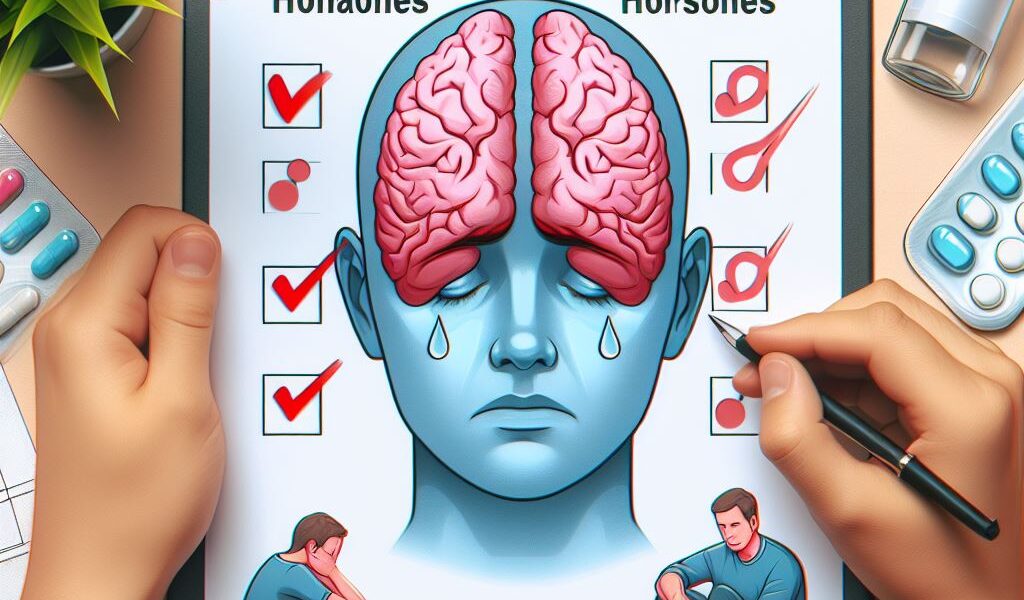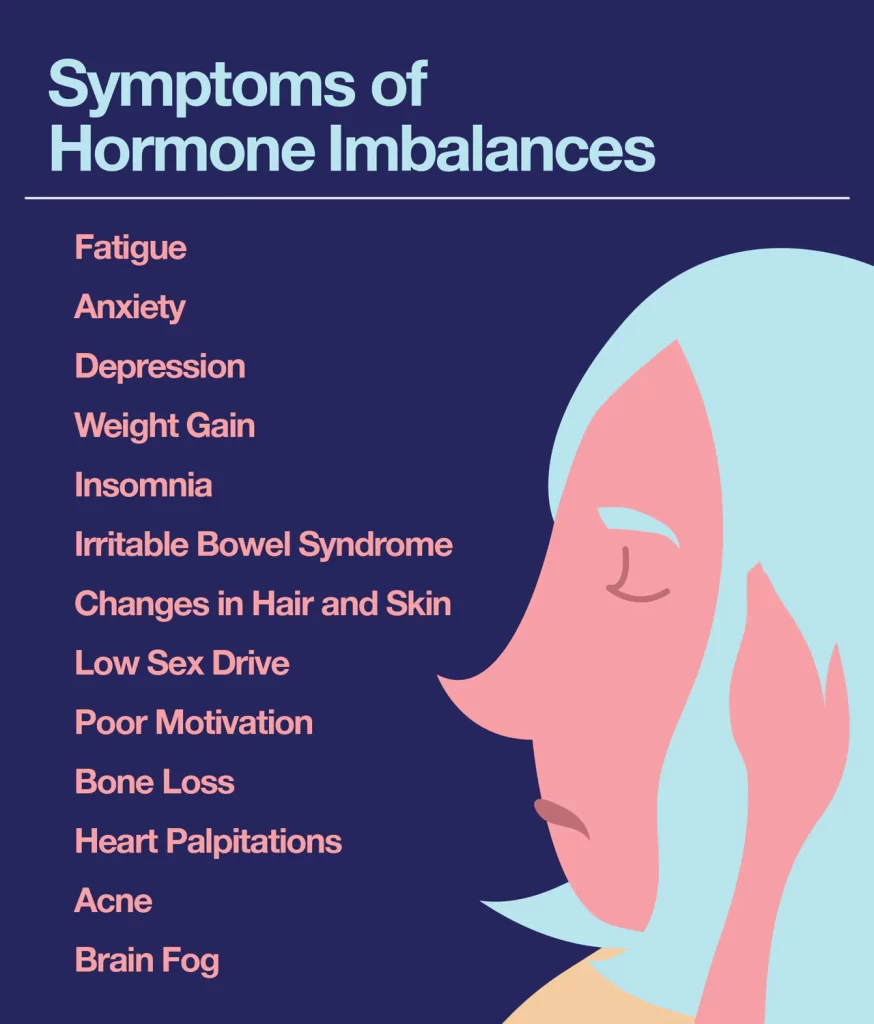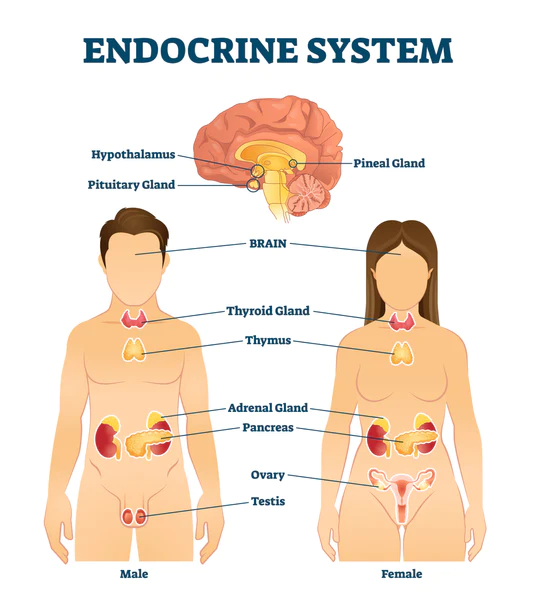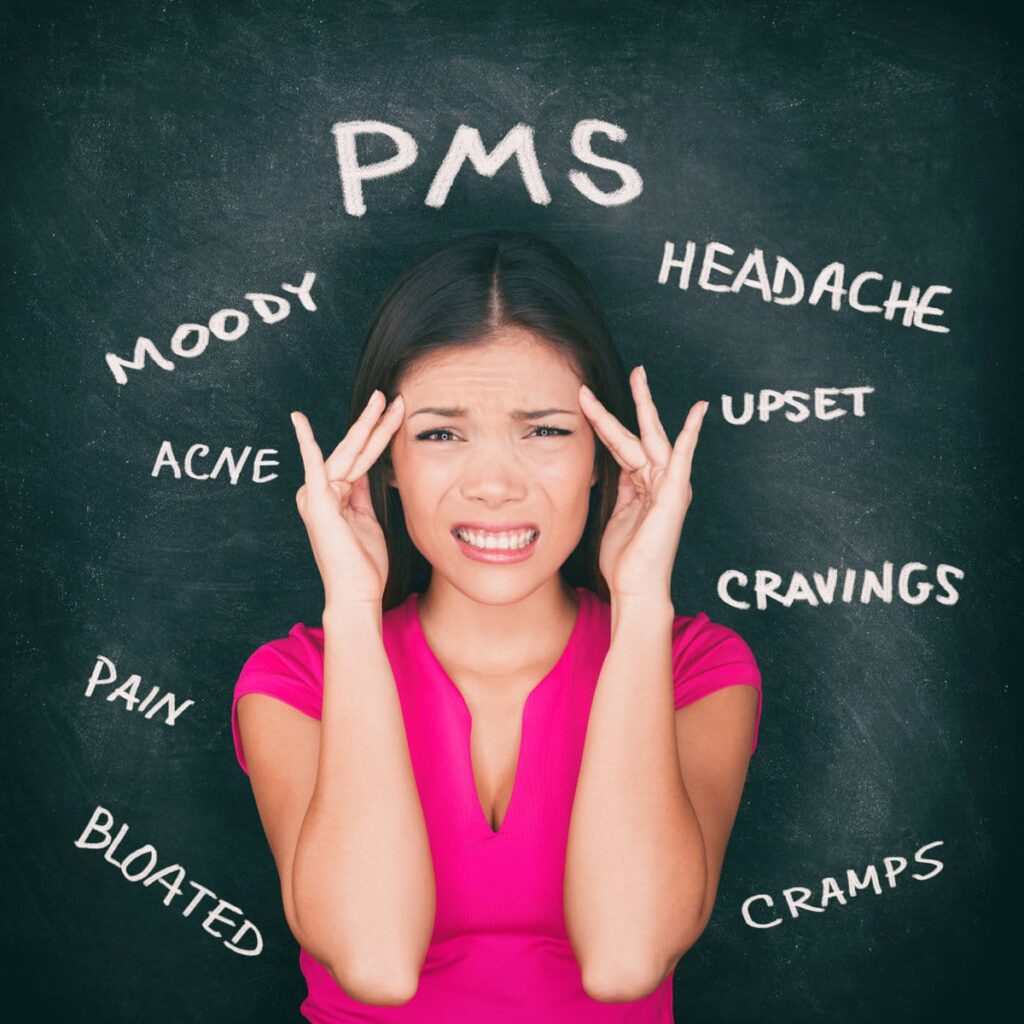A comprehensive guide to understanding and managing hormonal imbalances that affect your health and well-being
Prof. Aécio D’Silva, Ph.D
AquaUniversity
Unbalanced Hormones – Hormones are your body’s chemical messengers that regulate many of your vital functions, such as metabolism, reproduction, mood, and sleep. When your hormones are in balance, you feel good and function well. But when your hormones are out of balance, you may experience a range of symptoms and health problems that can affect your quality of life. In this blog post, you will learn what unbalanced hormones are, what causes them, how to identify them, and how to treat them.
What are unbalanced hormones?
Unbalanced hormones are when you have too much or too little of one or more hormones in your body. Hormones are produced by your endocrine glands, such as the thyroid, pituitary, adrenal, pancreas, ovaries, and testes. These glands release hormones into your bloodstream, where they travel to your target organs and tissues and bind to specific receptors. Hormones act as signals that tell your body what to do and when to do it. Hormones are essential for your health and well-being, as they control many aspects of your physiology and behavior, such as:
- Growth and development
- Metabolism and energy
- Appetite and digestion
- Body temperature and circadian rhythm
- Sexual function and reproduction
- Mood and emotions
- Stress response and immunity
- Memory and cognition
Hormones work in a delicate balance, where each hormone has a specific function and effect, but also interacts with other hormones to modulate their actions. Hormones are regulated by a complex feedback system, where your brain and your endocrine glands monitor and adjust the levels of hormones in your body according to your needs and environment. For example, when you are stressed, your brain signals your adrenal glands to release cortisol, a hormone that helps you cope with stress. But when the stress is over, your brain signals your adrenal glands to stop producing cortisol, so that your body can return to normal.
However, sometimes this feedback system can malfunction, and your hormones can become unbalanced. This can happen due to various factors, such as natural hormonal transitions, certain medical conditions, lifestyle habits, or environmental exposures. Unbalanced hormones can cause a variety of symptoms and health problems, depending on which hormones are affected, how much they are affected, and how long they are affected.
What causes unbalanced hormones?
There are many possible causes of unbalanced hormones, and they can vary depending on your age, sex, and health status. Some of the common causes of unbalanced hormones are:
- Natural hormonal transitions: Your hormones naturally change throughout your life, especially during puberty, pregnancy, breastfeeding, and menopause. These hormonal transitions can cause temporary or permanent changes in your hormone levels and balance and can affect your physical and mental health. For example, during puberty, your sex hormones (estrogen and testosterone) increase, which can cause acne, mood swings, and growth spurts. During pregnancy, your hormones (progesterone and human chorionic gonadotropin) increase, which can cause nausea, fatigue, and weight gain. During menopause, your hormones (estrogen and progesterone) decrease, which can cause hot flashes, insomnia, and osteoporosis.
- Medical conditions: Certain medical conditions can affect your endocrine glands or your hormone receptors and cause unbalanced hormones. Some of these conditions are genetic, such as Turner syndrome or Klinefelter syndrome, which affect your sex chromosomes and your sex hormone production. Some of these conditions are autoimmune, such as Hashimoto’s thyroiditis or Graves’ disease, which affect your thyroid gland and your thyroid hormone production. Some of these conditions are metabolic, such as diabetes or polycystic ovary syndrome (PCOS), which affect your pancreas or your ovaries and your insulin or androgen production. Some of these conditions are neoplastic, such as pituitary adenoma or adrenal carcinoma, which affect your pituitary or your adrenal glands and your growth hormone or cortisol production.
- Lifestyle habits: Your lifestyle habits can also affect your hormone levels and balance, as they can influence your endocrine glands, your hormone receptors, or your hormone metabolism. Some of the lifestyle habits that can cause unbalanced hormones are:
- Diet: Your diet can affect your hormone levels and balance, as it can provide or deprive your body of the nutrients, calories, and chemicals that are needed or harmful for your hormone production and function. For example, eating too much or too little can affect your metabolism and your thyroid hormones. Eating too much sugar or refined carbohydrates can affect your blood sugar and your insulin. Eating too much fat or cholesterol can affect your cholesterol and your sex hormones. Eating too much soy or phytoestrogens can affect your estrogen and your estrogen receptors.
- Exercise: Your exercise can affect your hormone levels and balance, as it can stimulate or suppress your endocrine glands, your hormone receptors, or your hormone metabolism. For example, exercising moderately can improve your metabolism and your thyroid hormones. Exercising intensely can increase your stress and your cortisol. Exercising regularly can improve your blood sugar and your insulin. Exercising excessively can decrease your body fat and your sex hormones.
- Stress: Your stress can affect your hormone levels and balance, as it can activate or inhibit your endocrine glands, your hormone receptors, or your hormone metabolism. For example, acute stress can increase your adrenaline and your cortisol, which can help you cope with the stress. Chronic stress can decrease your serotonin and your melatonin, which can affect your mood and your sleep. Stress can also affect your immune system and your inflammation, which can affect your hormone production and function.
- Sleep: Your sleep can affect your hormone levels and balance, as it can regulate or disrupt your endocrine glands, your hormone receptors, or your hormone metabolism. For example, sleeping well can synchronize your circadian rhythm and your melatonin, which can affect your body temperature and your sleep-wake cycle. Sleeping poorly can disturb your circadian rhythm and your cortisol, which can affect your metabolism and your stress response. Sleep can also affect your growth hormones and your leptin, which can affect your growth and your appetite.
- Alcohol: Your alcohol consumption can affect your hormone levels and balance, as it can interfere with your endocrine glands, your hormone receptors, or your hormone metabolism. For example, drinking alcohol can increase your estrogen and your cortisol, which can affect your breast tissue and your liver. Drinking alcohol can decrease your testosterone and your growth hormone, which can affect your muscle mass and your bone density. Drinking alcohol can also affect your blood sugar and your insulin, which can affect your glucose and your energy.
- Environmental exposures: Your environmental exposures can also affect your hormone levels and balance, as they can mimic or block your endogenous hormones, or alter your hormone production and function. Some of the environmental exposures that can cause unbalanced hormones are:
- Endocrine disruptors: Endocrine disruptors are chemicals that can interfere with your endocrine system and your hormone balance. They can act as hormone agonists, which mimic the effects of your natural hormones, or as hormone antagonists, which block the effects of your natural hormones. They can also affect your hormone synthesis, secretion, transport, binding, action, or elimination. Some of the common endocrine disruptors are bisphenol A (BPA), phthalates, parabens, pesticides, and heavy metals. [1]
- Radiation: Radiation can damage your endocrine glands or your hormone receptors and cause unbalanced hormones. Radiation can be ionizing, such as X-rays or gamma rays, which can break the chemical bonds in your DNA and cause mutations or cancer. Radiation can also be non-ionizing, such as ultraviolet (UV) rays or electromagnetic fields (EMF), which can alter the structure or function of your molecules and cells. Some of the sources of radiation are medical imaging, nuclear power, sun exposure, and wireless devices. [2]
- Infections: Infections can affect your endocrine glands or your hormone receptors and cause unbalanced hormones. Infections can be viral, such as mumps or Epstein-Barr virus, which can infect your salivary glands or your thyroid gland and cause inflammation or dysfunction. Infections can also be bacterial, such as tuberculosis or syphilis, which can infect your adrenal glands or your pituitary gland and cause damage or destruction. Infections can also affect your immune system and your inflammation, which can affect your hormone production and function. [3]
How do I know and identify if my hormones are unbalanced?
Hormones are your body’s chemical messengers that regulate many of your vital functions, such as metabolism, reproduction, mood, and sleep. When your hormones are in balance, you feel good and function well. But when your hormones are out of balance, you may experience a range of symptoms and health problems that can affect your quality of life.
Unbalanced hormones can cause a variety of symptoms and health problems, depending on which hormones are affected, how much they are affected, and how long they are affected. Some of the common symptoms and health problems caused by unbalanced hormones are:
- Weight changes: Unbalanced hormones can affect your metabolism and your appetite, and cause weight gain or weight loss. For example, too much or too little thyroid hormone can affect your basal metabolic rate and your energy expenditure. Too much or too little cortisol can affect your glucose and your fat storage. Too much or too little insulin can affect your blood sugar and your hunger. Too much or too little estrogen or testosterone can affect your body fat and your muscle mass.
- Mood changes: Unbalanced hormones can affect your mood and your emotions, and cause depression, anxiety, irritability, or mood swings. For example, too much or too little serotonin or dopamine can affect your happiness and your motivation. Too much or too little cortisol or adrenaline can affect your stress and your fear. Too much or too little estrogen or progesterone can affect your mood and your premenstrual syndrome (PMS).
- Sleep problems: Unbalanced hormones can affect your sleep and your circadian rhythm, and cause insomnia, fatigue, or daytime sleepiness. For example, too much or too little melatonin can affect your body temperature and your sleep-wake cycle. Too much or too little cortisol can affect your metabolism and your stress response. Too much or too little growth hormone can affect your growth and your recovery.
- Sexual problems: Unbalanced hormones can affect your sexual function and your reproduction, and cause low libido, erectile dysfunction, vaginal dryness, or infertility. For example, too much or too little testosterone can affect your sex drive and your sexual performance. Too much or too little estrogen or progesterone can affect your menstrual cycle and your ovulation. Too much or too little prolactin can affect your breast milk production and your fertility.
These are some of the common signs of unbalanced hormones, but they are not the only ones. Depending on which hormones are affected, how much they are affected, and how long they are affected, you may experience other symptoms and health problems, such as acne, hair loss, osteoporosis, diabetes, or heart disease.
If you suspect that you have unbalanced hormones, you should consult your healthcare provider for a proper diagnosis and treatment. Your healthcare provider may perform a physical examination, ask you about your medical history and your symptoms, and order some blood tests to measure your hormone levels. Depending on the cause and the severity of your hormonal imbalance, your healthcare provider may prescribe you some hormone replacement therapy, medication, or lifestyle changes to restore your hormone balance and improve your health and well-being.
What are some natural remedies for balancing hormones?
Hormones are your body’s chemical messengers that regulate many of your vital functions, such as metabolism, reproduction, mood, and sleep. When your hormones are in balance, you feel good and function well. But when your hormones are out of balance, you may experience a range of symptoms and health problems that can affect your quality of life.
Some of the natural remedies that may help balance your hormones are:
- Diet: Eating a balanced and nutritious diet that is rich in protein, fiber, healthy fats, and antioxidants can help support your hormone production and function. You should also avoid or limit foods that can disrupt your hormone balance, such as sugar, refined carbohydrates, processed foods, alcohol, and caffeine. [4, 5]
- Exercise: Engaging in regular physical activity can help regulate your hormone levels and balance, as it can improve your metabolism, blood sugar, stress, and sleep. You should aim for at least 150 minutes of moderate-intensity exercise per week, or 75 minutes of vigorous-intensity exercise per week, according to the World Health Organization. [6]
- Sleep: Getting enough quality sleep can help restore your hormone balance and circadian rhythm, as it can regulate your melatonin, cortisol, growth hormone, and sex hormones. You should aim for at least 7–9 hours of uninterrupted sleep per night, according to the National Sleep Foundation. [7] Check out this Meditative Breathing Technique 478-Psalm 23 to Combat Insomnia.
You should also avoid exposure to blue light, such as from your phone or computer, at least an hour before bedtime, as it can interfere with your melatonin production.
- Stress management: Reducing your stress levels can help balance your hormones, as it can lower your cortisol and adrenaline, which can affect your metabolism, mood, and immunity. You can use various stress-reducing techniques, such as meditation, yoga, breathing exercises, aromatherapy, or listening to music, to calm your mind and body. Check out also this Meditative Breathing Technique 478-Psalm 23 to Combat Stress.
- Supplements and herbs: Taking certain supplements and herbs can help balance your hormones, as they can provide essential nutrients, antioxidants, or phytochemicals that can modulate your hormone production and function. Some of the supplements and herbs that may help balance your hormones are:
- Omega-3 fatty acids: Omega-3 fatty acids are essential fats that can help reduce inflammation, improve insulin sensitivity, and regulate estrogen and progesterone levels. You can get omega-3 fatty acids from foods such as fatty fish, flaxseeds, chia seeds, or walnuts, or from supplements such as fish oil or krill oil.
- Vitamin D: Vitamin D is a fat-soluble vitamin that can help regulate calcium and phosphorus levels, as well as modulate the immune system and the endocrine system. Vitamin D can also affect the production and function of insulin, thyroid hormone, and sex hormones. You can get vitamin D from sun exposure, foods such as egg yolks, mushrooms, fortified foods, or supplements such as vitamin D3.
- Magnesium: Magnesium is a mineral that can help regulate over 300 enzymatic reactions in the body, including those involved in hormone synthesis and metabolism. Magnesium can also affect the levels and activity of insulin, cortisol, melatonin, and sex hormones. You can get magnesium from foods such as leafy greens, nuts, seeds, or dark chocolate, or from supplements such as magnesium citrate or magnesium glycinate.
- Ashwagandha: Ashwagandha is an adaptogenic herb that can help the body cope with stress and restore hormonal balance. Ashwagandha can also affect the levels and function of thyroid hormone, cortisol, and sex hormones. You can take ashwagandha as a powder, capsule, or extract.
- Maca: Maca is a root vegetable that can help balance hormones, especially sex hormones. Maca can also improve libido, fertility, mood, and energy. You can take maca as a powder, capsule, or extract.
These are some of the natural remedies that may help balance your hormones. However, before taking any supplements or herbs, you should consult your healthcare provider for a proper diagnosis and treatment, as well as to avoid any potential interactions or side effects. If you want to learn more about unbalanced hormones, their causes, and their treatments, you can read this web page that I found: Hormonal Imbalance: Causes, Symptoms & Treatment. [5]
Conclusion
Hormones are essential for your health and well-being, as they control many aspects of your physiology and behavior. However, sometimes your hormones can become unbalanced, due to various factors, such as natural hormonal transitions, medical conditions, lifestyle habits, or environmental exposures. Unbalanced hormones can cause a variety of symptoms and health problems, such as weight changes, mood changes, sleep problems, and sexual problems.
If you suspect that you have unbalanced hormones, you should consult your healthcare provider for a proper diagnosis and treatment. Depending on the cause and the severity of your hormonal imbalance, your healthcare provider may prescribe you some hormone replacement therapy, medication, or lifestyle changes to restore your hormone balance and improve your health and well-being.
You can also try some natural remedies to balance your hormones, such as eating a balanced and nutritious diet, engaging in regular physical activity, getting enough quality sleep, reducing your stress levels, and taking certain supplements and herbs. However, before taking any supplements or herbs, you should consult your healthcare provider to avoid any potential interactions or side effects.
Unbalanced hormones are not a life sentence. With the right diagnosis, treatment, and lifestyle changes, you can balance your hormones feel good, and function well.
Check out this article in Portuguese version:
References:
[1] https://www.healthline.com/health/hormonal-imbalance.
[2] https://my.clevelandclinic.org/health/diseases/22673-hormonal-imbalance.
[3] https://www.verywellhealth.com/hormonal-imbalance-symptoms-7565418.
[4] https://www.healthline.com/nutrition/balance-hormones
[5] https://www.medicalnewstoday.com/articles/324031.
[6] https://www.earthclinic.com/cures/hormones.html.
[7] https://menopausebetter.com/natural-ways-to-balance-hormones-after-40/.







